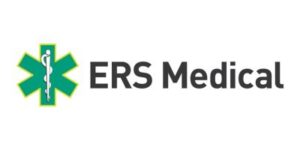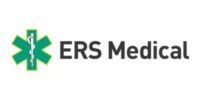
Patient Transport
Case Study: ERS Medical
About ERS Medical
 ERS Medical’s key service is the provision of ambulance services to both NHS and independent sector organisations which includes emergency and non-emergency patient transport services.
ERS Medical’s key service is the provision of ambulance services to both NHS and independent sector organisations which includes emergency and non-emergency patient transport services.
As one of the UK’s largest independent healthcare service providers, completing over 500,000 journeys a year nationwide, ERS Medical has a comprehensive fleet of ambulances and medicars, providing a suite of flexible 24/7/365 transport options. They employ over 1,000 staff including paramedics, technicians and nurses.
Why did ERS Medical choose Radar Healthcare?
ERS Medical’s vision is to be the leading independent ambulance provider in the country by 2022, and they needed the right systems and processes in place to facilitate that success.
The previous compliance system in place was not specifically designed for the healthcare industry so it didn’t provide the ambulance service with the necessary visibility across all its services and the ability to plan and react to incidents.
How was Radar Healthcare implemented?
The team at Radar Healthcare helped ERS Medical import its business and regulatory requirements into the software, building customised workflows based on the organisation’s policies and procedures.
The introduction of Radar Healthcare also prompted ERS to review its internal compliance processes which drove significant change and improvements within the organisation.
Interested in Radar Healthcare?
"A key part of working with the team at Radar Healthcare is that you review the processes as part of delivering the system. It has been a hugely important part of our transition plans and has been very well received by all staff."

How has Radar Healthcare supported ERS Medical with quality improvement and compliance?
Improved transparency
Radar Healthcare has supported ERS Medical to plan and manage issues and the intuitive reporting function ensures that progress and action plans can be easily evidenced.
Digital transformation
Radar Healthcare has been instrumental in ERS Medical’s transformation plans, providing the team with operational efficiencies and data-driven insights.
Continuous improvement
ERS Medical now has the capability to identify problem areas and more importantly, track and trend these events, write action plans and link them to other areas of the business if needed.
"We have much greater transparency of our compliance. We are now able to correctly plan and manage issues more effectively and our ability to now evidence what we do is hugely significant. We have seen a huge improvement in our initial investigations and our Regional Managers really buy into it. When the CQC has seen Radar Healthcare, they have been really impressed, as have our NHS customers, who now specifically ask for data out of Radar Healthcare."

Radar Healthcare functions CQC inspection comment* Incident management “Incidents were recorded on an electronic system. When an incident was recorded, an email alert was sent to the regional manager and the head of care standards as well as to the staff member’s line manager and the member of staff who had raised the incident. We reviewed the system and saw that incidents were colour coded red, amber, lower amber and green (RALAG rated). Incidents were allocated an investigation owner and timescales were included to ensure the investigation was completed in line with policy.” Risk management “There were systems of governance at management level to monitor performance and risk. Problems were identified and addressed quickly and openly.” Audit management “There was a monthly audit programme in place. We saw audit compliance were always above the set standard.” Action and improvement plans “We reviewed the computer system and saw that there were drop down boxes which had to be completed as part of the safeguarding referral. If any were answered “no” the system automatically generated an action plan which the person allocated to investigate had to complete before the referral could be closed.” Workforce compliance “There was good oversight of staff training and competencies. The service had an online HR system that tracked staff training compliance. At the time of inspection 98% of staff had completed mandatory training and 100% of staff were up to date with their annual update training.” Organisational process management “There were effective and integrated business management systems which gave senior leaders up to date information and oversight of the service.” *Taken from CQC inspection report published June 2019






